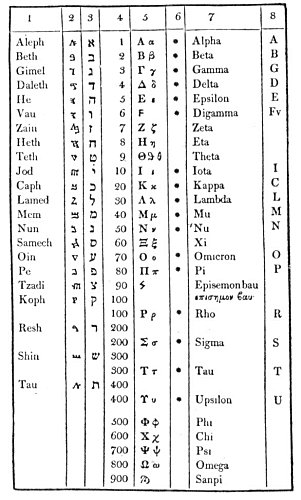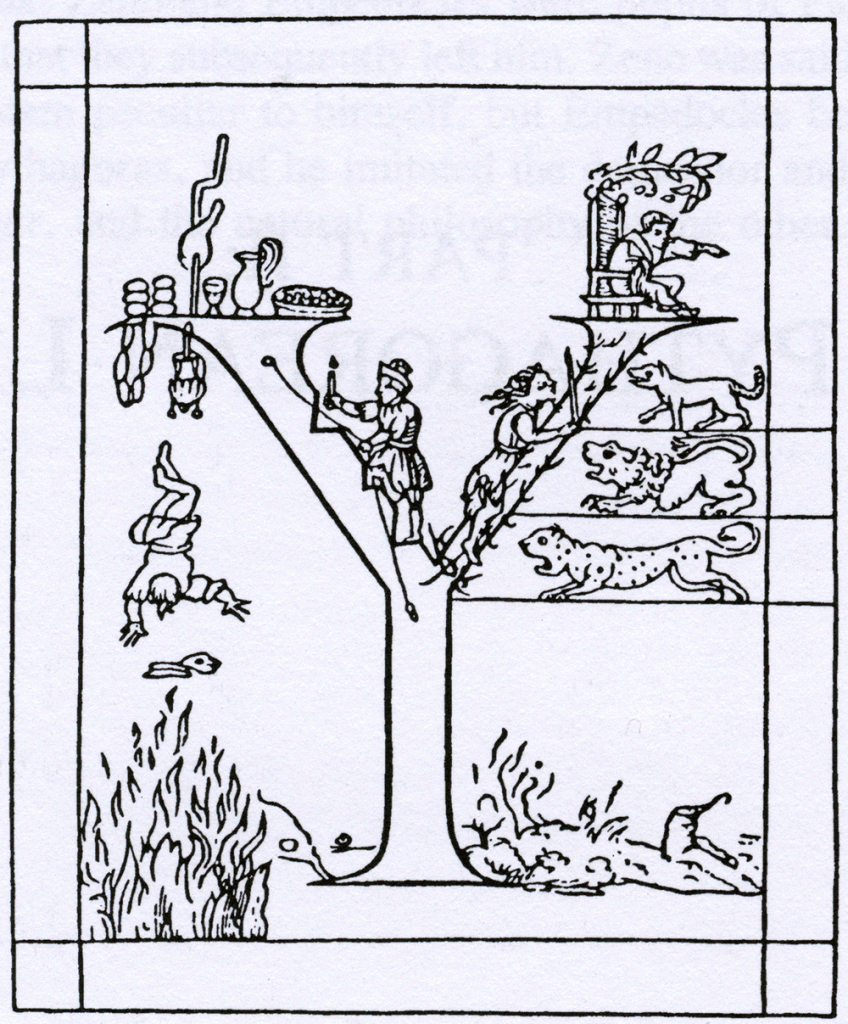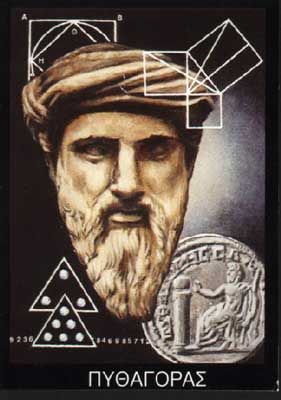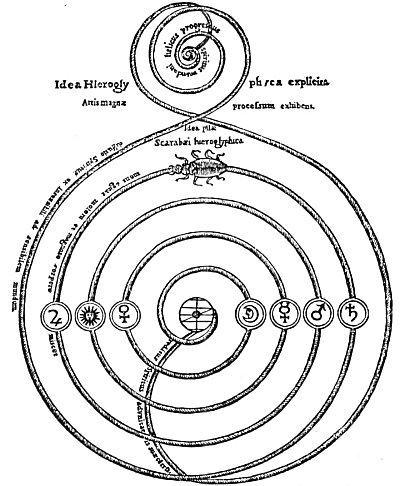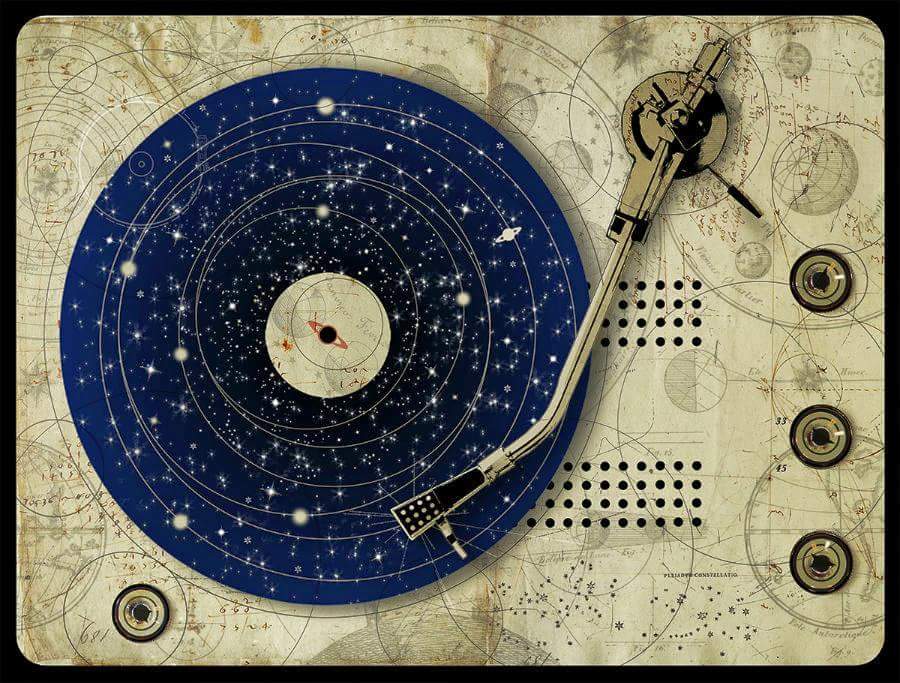To Pythagoras music was one of the dependencies of the divine science of mathematics, and its harmonies were inflexibly controlled by mathematical proportions. The Pythagoreans averred that mathematics demonstrated the exact method by which the good established and maintained its universe. Number therefore preceded harmony, since it was the immutable law that governs all harmonic proportions. After discovering these harmonic ratios, Pythagoras gradually initiated his disciples into this, the supreme arcanum of his Mysteries. He divided the multitudinous parts of creation into a vast number of planes or spheres, to each of which he assigned a tone, a harmonic interval, a number, a name, a color, and a form. He then proceeded to prove the accuracy of his deductions by demonstrating them upon the different planes of intelligence and substance ranging from the most abstract logical premise to the most concrete geometrical solid. From the common agreement of these diversified methods of proof he established the indisputable existence of certain natural laws.
Having once established music as an exact science, Pythagoras applied his newly found law of harmonic intervals to all the phenomena of Nature, even going so far as to demonstrate the harmonic relationship of the planets, constellations, and elements to each other. A notable example of modern corroboration of ancient philosophical reaching is that of the progression of the elements according to harmonic ratios. While making a list of the elements in the ascending order of their atomic weights, John A. Newlands discovered at every eighth element a distinct repetition of properties. This discovery is known as the law of octaves in modern chemistry.
Since they held that harmony must be determined not by the sense perceptions but by reason and mathematics, the Pythagoreans called themselves Canonics, as distinguished from musicians of the Harmonic School, who asserted taste and instinct to be the true normative principles of harmony. Recognizing, however, the profound effect: of music upon the senses and emotions, Pythagoras did not hesitate to influence the mind and body with what he termed “musical medicine.”
Pythagoras evinced such a marked preference for stringed instruments that he even went so far as to warn his disciples against allowing their ears to be defiled by the sounds of flutes or cymbals. He further declared that the soul could be purified from its irrational influences by solemn songs sung to the accompaniment of the lyre. In his investigation of the therapeutic value of harmonics, Pythagoras discovered that the seven modes–or keys–of the Greek system of music had the power to incite or allay the various emotions. It is related that while observing the stars one night he encountered a young man befuddled with strong drink and mad with jealousy who was piling faggots about his mistress’ door with the intention of burning the house. The frenzy of the youth was accentuated by a flutist a short distance away who was playing a tune in the stirring Phrygian mode. Pythagoras induced the musician to change his air to the slow, and rhythmic Spondaic mode, whereupon the intoxicated youth immediately became composed and, gathering up his bundles of wood, returned quietly to his own home.
There is also an account of how Empedocles, a disciple of Pythagoras, by quickly changing the mode of a musical composition he was playing, saved the life of his host, Anchitus, when the latter was threatened with death by the sword of one whose father he had condemned to public execution. It is also known that Esculapius, the Greek physician, cured sciatica and other diseases of the nerves by blowing a loud trumpet in the presence of the patient.
Pythagoras cured many ailments of the spirit, soul, and body by having certain specially prepared musical compositions played in the presence of the sufferer or by personally reciting short selections from such early poets as Hesiod and Homer. In his university at Crotona it was customary for the Pythagoreans to open and to close each day with songs–those in the morning calculated to clear the mind from sleep and inspire it to the activities of the coming day; those in the evening of a mode soothing, relaxing, and conducive to rest. At the vernal equinox, Pythagoras caused his disciples to gather in a circle around one of their number who led them in song and played their accompaniment upon a lyre.

Moe is the founder of GnosticWarrior.com. He is a father, husband, author, martial arts black belt, and an expert in Gnosticism, the occult, and esotericism.

